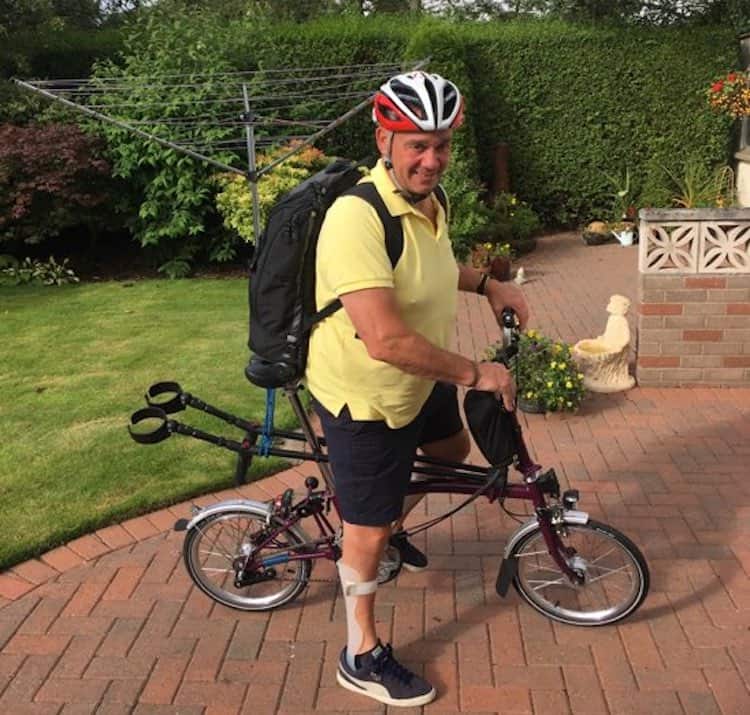Cycling is a great way of being independent
I have biked pretty seriously now for 12 years. I started to have a lot of bother with my mobility (I was born with two club feet) and had some scans done: the only thing I was offered was amputation of both feet. I sold my business in order to see a bit of the world before I lost them and started cycling in a small way, which gradually grew after a charity cycle I took part in.

Twelve years later, I still have both my feet, although I can’t really walk much more than 100 meters unaided. It doesn’t stop me from cycling though. I have done the Tour of Flanders over cobbles five times, cycled up Mount Ventoux, the Tourmalet, and too many other iconic cycling climbs to mention. I also did the Coast to Coast across Northern England a couple of years ago. This year I was chosen by Brompton to take part in the Ride London event to raise money for the Movember charity on one of their bikes.
I use a Brompton Bike for mobility and it disappoints me that more disabled people don’t cycle. It’s a great way of keeping your independence, staying reasonably fit and generally making you feel good. The trouble comes when you come across jobsworths – like a guy at a bar I went to recently – who just assume that if you can bike then you’re fit, and it doesn’t matter what you say they won’t accept the fact that you can’t walk.
I’ve been arrested twice in Glasgow, had a policewoman threaten to shoot me if I didn’t walk in Paris, been put off trains, shouted and abused in train stations by staff and thrown out of shopping malls – not for cycling but for using my bike unfolded and trying to walk by leaning on it.
It gets me down, but although my feet are knackered my spirit isn’t broken!
Have you encountered similar issues as a disabled cyclist? Please share your story with us by sending a short written piece of no more than 400 words, along with a photo, to info@wheelsforwellbeing.org.uk.
